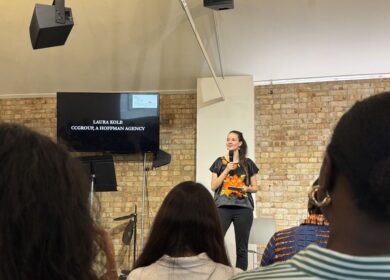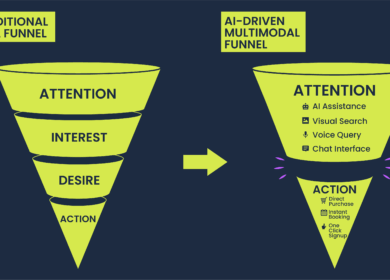By Deborah Giam
The Hoffman Agency, Singapore
“If it works for Charlie Munger, then it could work for anyone.”
When I sat down to write this blog post for our company, trying to think about the profound things I could say, I realized I was drawing a blank. Was there something that I felt so passionate about that I absolutely needed to write about it? Was there something that I felt so deeply about that I wanted the whole world know about it?
Well, no.
I’ve spent my career writing — from my early days in lifestyle magazines where I wrote, quite literally, about everything and anything. That meant that I needed to know a little about a lot, which put together, meant I ended up knowing quite a lot. And that’s what I’ve find I enjoy the most: working across a broad spectrum of industries and topics.
Such versatility is a skill that’s highly useable, if you think about it. I remember one of the questions I got during my job interview was whether I’d be able to cope with industries that were outside of my norm.
“Why not?” I remember telling the management team. “Because if I can find a way to understand it, it means I’ll be able to tell the story to make the media understand it too.”
And that’s the thing: I’ve become a jack of all trades and a master of few, which is not necessarily a bad thing. In fact, it’s called being a “T Professional,” and that is exactly what the highly-successful businessman Charlie Munger is when he’s going about his work.
There isn’t a topic that I can’t easily converse about, and that helps greatly in the communications world. I have clients that range from data storage companies and consumer goods, to resorts and non-profit organizations. Being stuck as a master of just one of those would limit the work I could do, the growth I could potentially make and the people that I could work with.
So what does this all have to do with getting along with anyone? Being able to talk about any topic at hand means you can easily put both clients and journalists at ease (it does help to have a good personality at the same time though). It means you are not just limited to talking shop all the time, and finding out what else your journalist is interested in, but also lets you engage them on a different level. They’ll remember you not just for the work you’ve done with them, but also as someone who has a common interest.
Take for example the time I met a new client. I hadn’t been actively involved in the pitching process and so I became, effectively, the last person introduced. As we took a stroll back to the client’s office after lunch to finish our onboarding, we struck up a conversation about several different things — where to find the best food around the area, yoga and car leasing policies. Three very different topics, but three topics that allowed us both to get to know each other better.
Go out and learn everything and anything you can about the world. It’ll turn you into a jack of all trades and a master of few. Then you’ll know that you can talk to anyone about just about everything as a savvy T professional.


